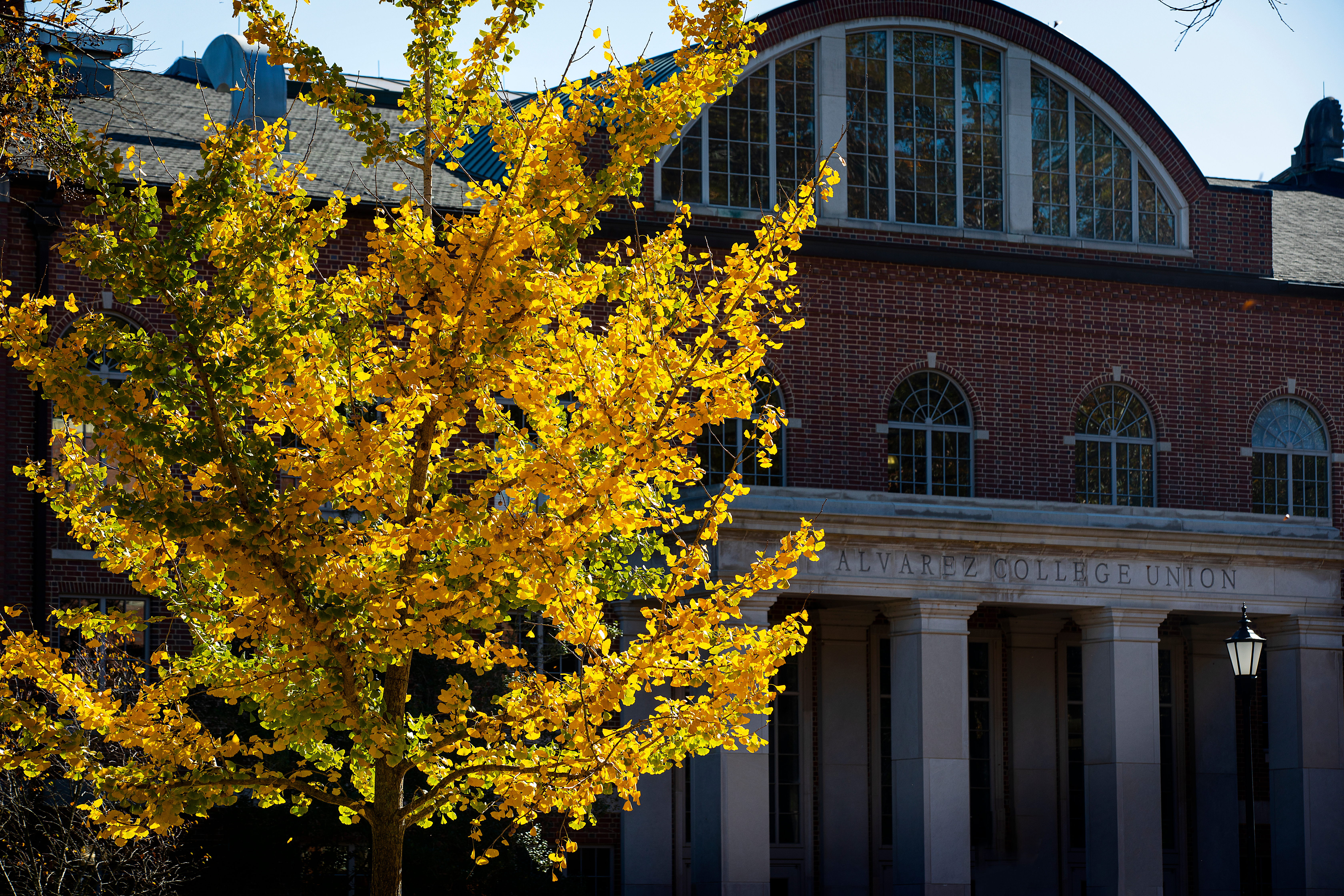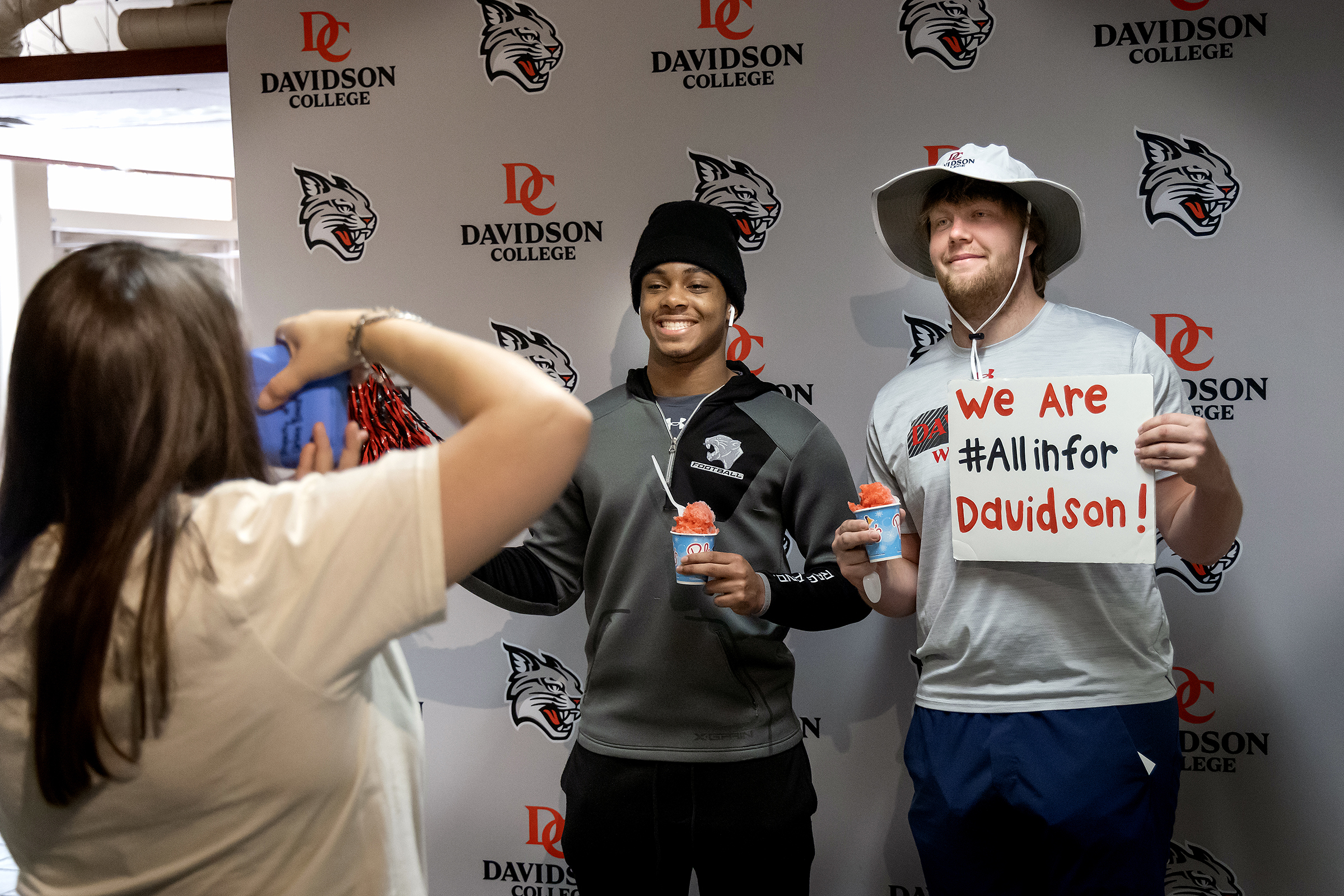Election Officials Say Public Trust, Transparency Chief Concerns in Handling of Fraud Case
March 27, 2019
- Author
- Mary Elizabeth DeAngelis

Election board chair Bob Cordle ’63 walks a Davidson College crowd through the historic fraud case that tainted one of the highest profile national elections of 2018.
North Carolina elections officials say they hope the investigation into absentee ballot fraud and the decision to call for a new election in the 9th Congressional District will reassure voters that they're on the case and won't tolerate corruption.
"When something like this happens, you need to resolve it so people have faith in the process," said Kim Westbrook Strach, executive director of the state Board of Elections. "Public trust in an election is the most important thing we have...if you don't have confidence in the results, we have a real problem."
Election board chair Bob Cordle ’63 walks a Davidson College crowd through the historic fraud case that tainted one of the highest profile national elections of 2018.
Strach, board attorney Josh Lawson and board chairman Bob Cordle '63, presented a road map of the tainted race at Davidson College Tuesday during an event: "What Really Happened in the 9th District Election?"
They described how a small-time political operative in Bladen County masterminded a scheme to illegally collect absentee ballots and sway the results of one of the highest-profile national elections.
It appears to be the first time in U.S. history that fraud overturned the results of a federal election, political experts say.
In November 2018, with the nation watching to see which party would control the U.S. House of Representatives, Republican Mark Harris defeated Democrat Dan McCready by a slim 905 margin in the 9th Congressional district.
The district spans from tony southeast Charlotte suburbs to rural, eastern North Carolina. McCready, a Marine veteran and businessman, captured the metropolitan vote, while Harris fared better in the district's smaller, rural communities.
Strach detailed how McCrae Dowless, an operative working for the Harris campaign, paid people to get absentee ballot requests to voters, which is legal. They would then return to collect the ballots and return them to Dowless, which is illegal.
In some cases, the seals on the ballots were broken. Investigators say Dowless earned more than $131,000 between July 2017 and the November 2018 election for his work.
"This was not a Democratic problem or a Republican problem, this was a money problem," Cordle said. "People did what they did to make money."
The elections board called for a new election after a four-day hearing where witnesses admitted to collecting ballots and Harris's son said he'd warned his father not to hire Dowless. Mark Harris, who maintained he'd never been warned, opted out of the hearing after being questioned about emails from his son that contradicted his statements. Harris said then that he supported a new election and later dropped out of the race.
Dowless has since been indicted on felony conspiracy charges and a criminal investigation continues.
The election has been a hot topic in Davidson College political science courses and the presentation attracted students who wanted to know more.
"I've become really interested in North Carolina since coming to Davidson," said Anne Ridenhour '21, of Charlottesville, Virginia, who followed the race in class and through the national media. "I came to get more information about what happened."
Visiting Professor Michael Bitzer said the presentation should reassure people.
"Their willingness to show this level of transparency of such a highly controversial event should give comfort to the average voter that if there are irregularities, someone is watching," Bitzer said.
Read more about Cordle and watch a video of the event here: "As Nation Watches, Elections Board Raises Curtain on Fraud Case."



